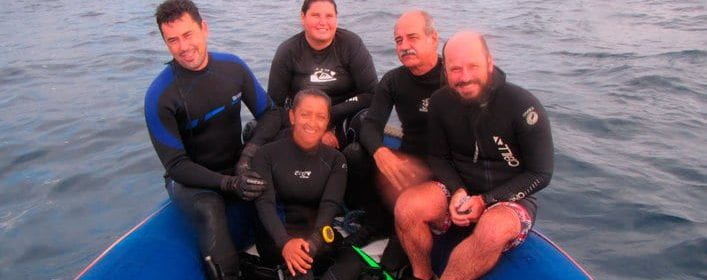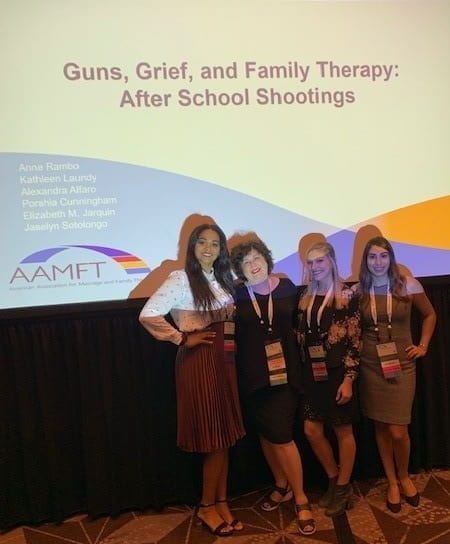Halmos Faculty Publish Galapagos Article in Nature Scientific Reports

 Halmos faculty Bernhard Riegl, Ph.D., Matthew Johnston, Ph.D., and Joshua Feingold, Ph.D. are part of a group of researchers who published their findings on environmental and biological determinants of coral richness in the Galapagos (Ecuador).
Halmos faculty Bernhard Riegl, Ph.D., Matthew Johnston, Ph.D., and Joshua Feingold, Ph.D. are part of a group of researchers who published their findings on environmental and biological determinants of coral richness in the Galapagos (Ecuador).
Their research shows that throughout the Galapagos, differences in coral reef development and coral population dynamics were evaluated by monitoring populations from 2000–2019, and environmental parameters (sea temperatures, pH, NO3−, PO43−) from 2015–19. The chief goal was to explain apparent coral community differences between the northern (Darwin and Wolf) and southern (Sta. Cruz, Fernandina, San Cristóbal, Española, Isabela) islands. Site coral species richness was highest at Darwin and Wolf. In the three most common coral taxa, a declining North (N)-South (S) trend in colony sizes existed for Porites lobata and Pocillopora spp., but not for Pavona spp. Frequent coral recruitment was observed in all areas. Algal competition was highest at Darwin, but competition by bioeroding sea urchins and burrowing fauna (polychaete worms, bivalve mollusks) increased from N to S with declining coral skeletal density. A single environmental factor could not explain the variability in observed coral community characteristics, with minimum temperature, pH and nutrient levels the strongest determinants. Thus, complex environmental determinants combined with larval connectivity patterns may explain why the northern Galápagos Islands (Darwin, Wolf) have higher coral richness and cover and also recover more rapidly than central/southern islands after region-wide disturbances.
For more information:https://www.nature.com/articles/s41598-019-46607-9


















